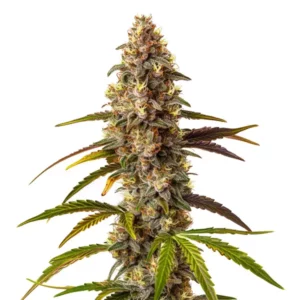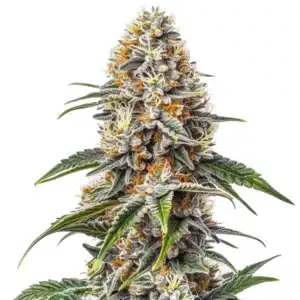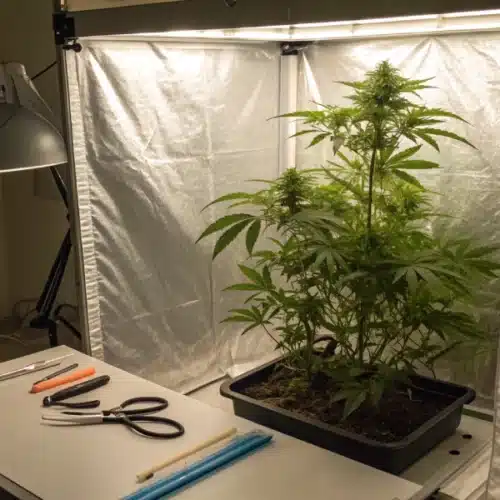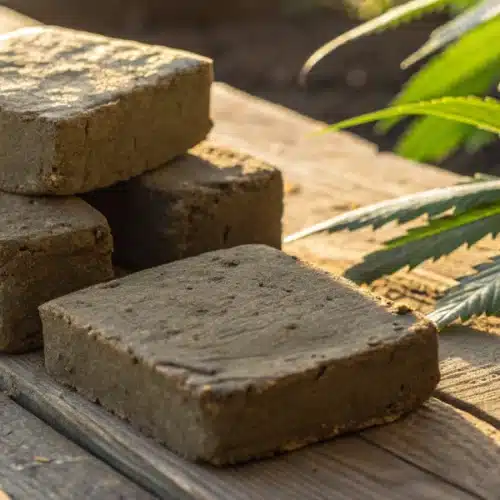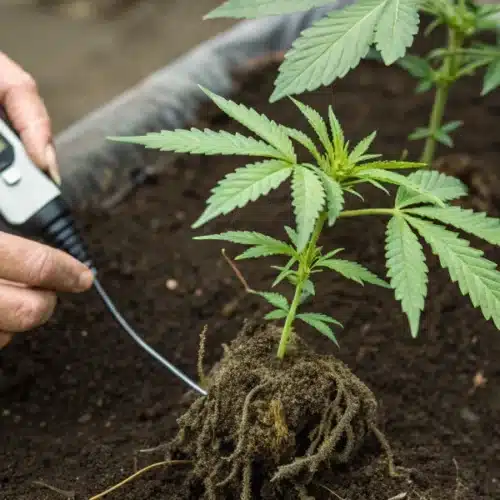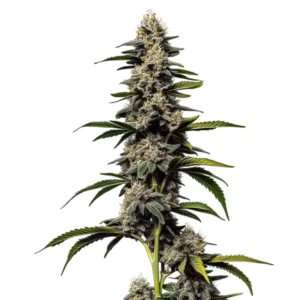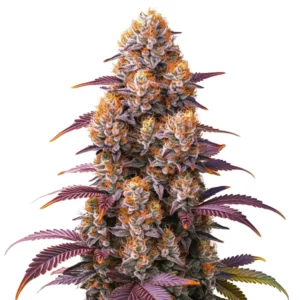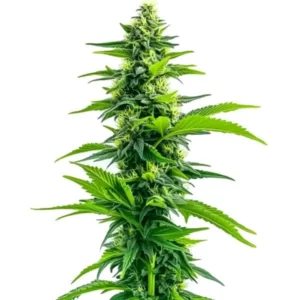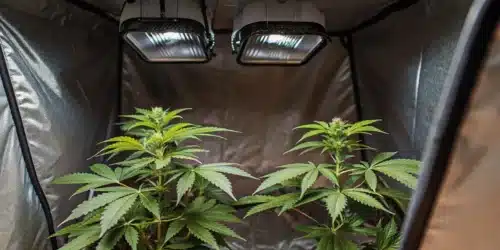This is a question asked by thousands of cannabis users around the world: how does Marijuana affect the lungs? Science has tried to answer this question by carrying out different investigations. Through this post, we are going to teach you the main effects of cannabis on your lungs through inhalation, either by using joints or using a vaporizer.
First of all, we must clarify that among all the marijuana compounds, the two best known and most studied are THC and CBD. However, these two elements are not all because the weed also contains benzopyrene and benzantracene. Both are carcinogenic compounds which are also present in cigarette smoke. Some curious facts about weed are that this herb contains 50% more benzopyrene and about 75% more benzanthracene than cigarette smoke. Perhaps this data will raise some questions that we will solve below.
We are going to point out that a study carried out in Sweden and called, “Marijuana Use and Risk of Lung Cancer: A 40-Year Cohort Study”, that analyzed men between 18 and 20 years of age who performed Military Service between 1969 – 1970 and were followed and tracked until 2009. When performing the first test on the analysis leaflets, 10.5% indicated that they had smoked marijuana all their lives and 1.7% said that they had more than 50 times or were chronic pot users. The results showed that chronic users were more likely to develop lung cancer over the period that they were tracked, that is, 40 years. This was done bearing in mind that some of the cannabis users studied are also habitual tobacco users.
After reading this, many of our readers must ask themselves: how do marijuana compounds affect the lungs? Here, we must talk about how weed compounds reach the human body and what parts can be affected. The combustion of the grass, whether from joints or when you smoke hash, generates toxins that can be carcinogenic like cigarettes. We must also add that cannabis generates up to 4 times as much tar as cigarettes due to the inhalation technique applied by each weed consumer.
Many ganja smokers inhale the smoke and then keep it in their lungs for a longer time than other fumes. This causes the smoke to settle in the lungs and generate problems in the respiratory system in the long term. When burning marijuana, the lungs tend to become inflamed as well as the airways. For this reason, smoking can cause coughing, tightness of the lungs, and wheezing. Some chronic cannabis users can develop bronchitis. It is also good to know that other types of diseases can be caused by cannabis use. This is why we are going to talk about bronchitis, the aforementioned pathology.
Bronchitis
This disease is caused by inflammation and swelling of the lungs. It is one of the conditions often discussed when examining how Marijuana Affect the Lungs. Acute bronchitis, with proper treatment, can go away, while chronic bronchitis is persistent and may never fully resolve.
According to the American Lung Society, a person who uses cannabis in the long term can be affected by chronic bronchitis. People with this pathology can have difficult breathing because their lungs whistle and also because they cough uncontrollably.
Promos & Deals
Can Smoking Marijuana Cause Lung Cancer?
It is important to clarify this because science is not absolutely sure if smoking marijuana causes cancer, as the studies conducted so far have been small and limited in scope. Most of these studies have analyzed individuals who smoke both marijuana and tobacco, making the results difficult to interpret clearly. This overlap leads to inconclusive data when trying to determine how exactly Marijuana affect the lungs on its own.
What is certain is that combining marijuana with tobacco increases the risk of severe health issues. A study has shown that cases of lung cancer double when a person consumes both substances. In other words, someone who uses both tobacco and marijuana is twice as likely to develop cancer compared to those who don’t.
On the other hand, some studies have shown that THC and CBD, the two best-known compounds in cannabis, help fight cancer. Despite this, science has not reached definitive conclusions. It is good to clarify that the National Cancer Institute states that cannabinoids may have benefits in treating cancer-related side effects.

What are the risks of vaping marijuana?
Vaping produces a condition in the lungs, causing a collapse in the small bags of the lungs to later heal.
This type of disease can cause death because it prevents the exchange of oxygen and carbon dioxide, a vital process for the body. Some scientists have shown that vaping marijuana produces ammonia in the respiratory tract which is why it can cause wheezing, breathing problems, or coughing. Currently investigating the causes of these health problems when vaping marijuana, scientists have reached preliminary conclusions focusing on three factors.
- The high temperatures that vaporizers can reach.
- The high levels of THC in the marijuana that is vaporized.
- Existence of chemicals that damage the lungs in vaporizers.
Is there a safe method of inhaling marijuana?
The American Thoracic Society estimates that there is no 100% safe method of smoking marijuana without damaging your lungs. In fact, it lists different methods such as smoking joints, pipes, or water bongs as examples of how marijuana affect the lungs through inhalation. Despite these concerns, the American Thoracic Society also states that more research is needed to make a definitive or conclusive decision regarding the full extent of these effects.
We have already talked about diseases such as bronchitis and cancer which can be manifested by chronic cannabis use. Now, you may be wondering if there are other types of pathologies linked to cannabis use. That is why we ask ourselves the following question:
Are the risks of getting a lung infection from smoking marijuana increased?
When marijuana is contaminated by fungi such as mold and other bacteria, it can cause a collapse in the lungs if you are a regular user of this type of herb. According to the American Thoracic Society, some weed smokers can develop lung infections from the existence of mold on the buds which produces “Asperguillus.”
Asperguillus is a fungus that lives in the marijuana plant and develops due to the existence of humid and warm climates when there is no control of humidity, temperature, and good ventilation in the growing areas, especially indoors or in a greenhouse.
Asperguillus causes infections in the lungs, especially in people with immunodeficiency, such as cancer. Also, patients who are using drug treatments such as immunosuppressants are at higher risk of being affected by a lung infection.
On the other hand, the use of cannabis by inhalation is not recommended for people who are undergoing cancer treatments or have a weakened immune system. Here, it was mentioned that people undergoing certain treatments should not consume cannabis through combustion. This is supported by the fact that Marijuana Affect the Lungs in ways that can compromise the immune system and reduce the body’s ability to fight diseases—especially for patients whose immunity is already weakened by medications or immunosuppressive conditions. The American Lung Association states on its official website that the consumption of marijuana by combustion is linked to the emergence of air pockets between the lungs and the chest wall. In some cases, large air bubbles have been observed in the lungs of adult, young, and middle-aged users.
The same American entity says that marijuana destroys the first line of defense against infections by killing the cells that help eliminate dust and germs from the lungs. He adds that this also causes the appearance of more mucus inside the lungs. Thus, heavy marijuana smokers could be more exposed to lung infections, although it is not very clear if these types of pathologies are more common among cannabis smokers. Some data from this lung expert organization says that for this reason, visits to the doctor are more frequent among marijuana smokers than among non-smokers.
Now, many cannabis users have stopped smoking pot because they are thinking about taking care of their health. Many others think that quitting smoking can bring them some benefits.
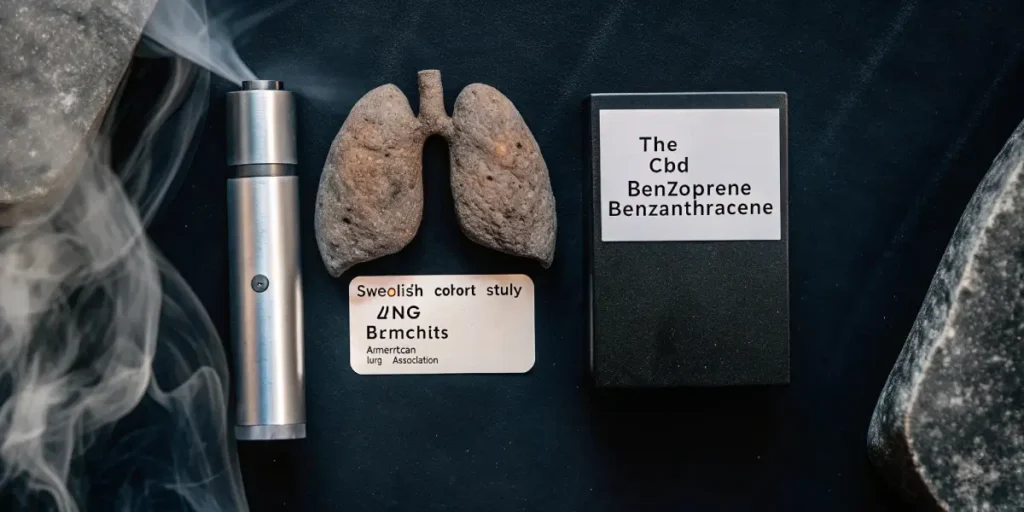
That is why we wonder: What are the benefits of quitting smoking weed?
According to a study carried out over 10 years on 299 people, it was determined that people who quit smoking marijuana have the same risk of suffering from bronchitis as people who have never smoked. This finding contributes to the ongoing discussion on how Marijuana Affect the Lungs, suggesting that some respiratory effects may be reversible after cessation.
We must add that the rates of reports of lung whistling and the amount of lung mucus and coughing decrease considerably among people who quit smoking and are very similar to those who have never smoked marijuana, according to a study among 1000 38-year-old men.
Both people who have stopped smoking and those who continue to consume weed, despite the possible damage that can be generated in their lungs, are potential donors in the event of a transplant. You may wonder, can I donate my lungs when I die? Of course, if your lungs are in good condition and working, of course you could donate them to a person who needs a transplant. A study was carried out in 2017 that provided data that former cannabis smokers can donate their lungs to be transplanted to patients who need one because the history of being former smokers does not influence the transplant itself.
We have talked about different pathologies that could be caused by smoking marijuana. Now, we must ask ourselves how we should use cannabis in order to avoid suffering from diseases of the lungs?
- Do not smoke marijuana with moho because this will cause health problems in your lungs.
- Try to smoke weed of low or medium THC rather than high levels of THC.
- If you vaporize ganja, do it in chemical-free vaporizers so that the vapor does not damage your respiratory system.
- When smoking marijuana in joints, use organic papers without additives so that when the herb is burned, the chemicals that are produced do not cause any disease.
- Smoke marijuana responsibly. Do not go beyond the limits. If you have a little awareness of your body, you will know when your body will start to reject weed and will not hold any more.
- If you smoke tobacco and marijuana then stop smoking tobacco because this increases the chances that you will contract a disease of the lungs, especially cancer.
- Avoid smoking marijuana in closed places. Look for open places so that your lungs can breathe fresh air and do not feel overwhelmed by the smoke that is usually concentrated in closed spaces.
- If you are a grower, try to grow your herb in a 100% organic way so that the final product, the buds, are not full of chemicals that can damage your lungs. On the other hand, if you buy your weed in a dispensary, demand organic pot from that store or dealer because that way you will take better care of your health and your lungs.
We hope these tips will help guide you in case you have questions about how Marijuana affect the lungs and the potential health implications. If you have any questions, remember to leave them in the comments and our team of specialists will help you overcome your doubts—because at Blimburn Seeds, we are a cannabis community that grows day by day.
FAQs
Can smoking marijuana cause lung cancer?
While some studies suggest a potential link between chronic marijuana smoking and lung cancer, scientific evidence remains inconclusive. Most research involves participants who also smoke tobacco, making it difficult to isolate marijuana’s specific effects. However, combining cannabis and tobacco significantly increases the risk of developing lung cancer, so avoiding tobacco is strongly advised.
What are the respiratory risks of vaping marijuana?
Vaping marijuana may lead to lung damage, including the collapse of alveoli (tiny air sacs in the lungs), which can impair oxygen exchange. High temperatures, elevated THC levels, and chemical residues in some vaporizers are possible causes. Reported symptoms include coughing, wheezing, and breathing difficulties. While more research is needed, caution is advised when using vaporizers.
What are the benefits of quitting smoking weed for lung health?
Quitting marijuana can significantly improve lung health. Studies show that ex-smokers report reduced coughing, less mucus, and fewer breathing issues, with respiratory health resembling that of individuals who have never smoked. Additionally, former cannabis users may still be eligible as lung donors, as past marijuana use does not necessarily impact transplant success.

